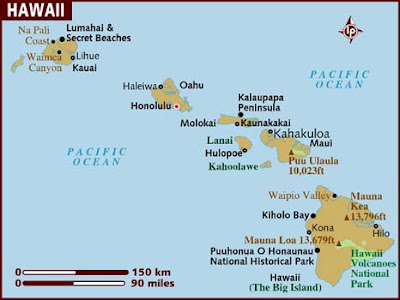Based on what happened here to me, I don’t think there’s one thing wrong with the American health care system. It is working just fine, just dandy.
-Rush Limbaugh, speaking about his experience with Hawaii's health care system.Was the billionaire broadcaster correct about health care in Hawaii? And is it indicative of the health care offered by the other 49 states? Yes and no. According the American Human Development Report (2005), Hawaiians live longer than residents of any other state (81.4 years). According the New York Times, Hawaiians are bullish about a system that leads the nation in breast cancer cure rate and where insurance premiums are among the lowest in the country as well as the lowest Medicare costs per beneficiary, despite Hawaii's high cost of living.
There's another major difference in Hawaiian health care, one that sets it apart from every other state: Employers must purchase health insurance for any employee who works more than twenty hours a week. All in all, about 90% of non-elderly Hawaiians have health insurance. (Elder Hawaiians are, of course, covered by Medicare.) Certainly, some employers duck the requirement by keeping hours under twenty a week or by simply refusing to pay. Others, though, are proud of the generous benefits afforded their employees.
The law is simple enough: Employers provide standardized health plans with no co-pays, low deductibles, and limits to out-of-pocket expenses. This in turn results in low administrative costs of around 7%. Employers purchase either a pre-approved plan, one they select subject to approval, or provide a self-funded plan. They may share costs with employees up to 50% or 1.5% of an employee's gross monthly earnings.
Hawaii does face problems with its health care system: The recession and the accompanying rise in unemployment has increased the number of uninsured, reflecting an inherent weakness in employer-based health care; the small hospitals of the outer islands face serious financial problems; and state health care benefits do not extend to long-term care, which has been plagued by a lack of liability insurance. Moreover, its geographic isolations and lifestyle may boost its outcomes. Nonetheless Hawaii's outcomes combined with its low cost of health care in a high cost-of-living state suggest the health and economic advantages of universal and equal access.
Click here to learn more about health care in Hawaii.

No comments:
Post a Comment